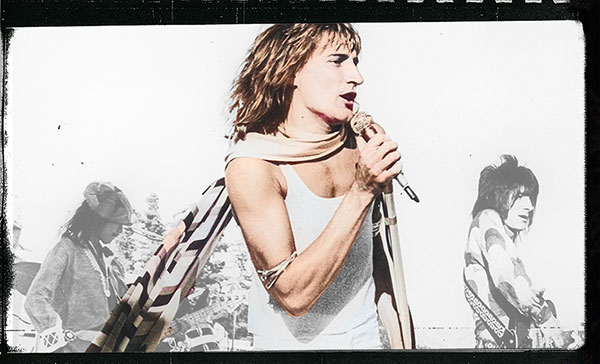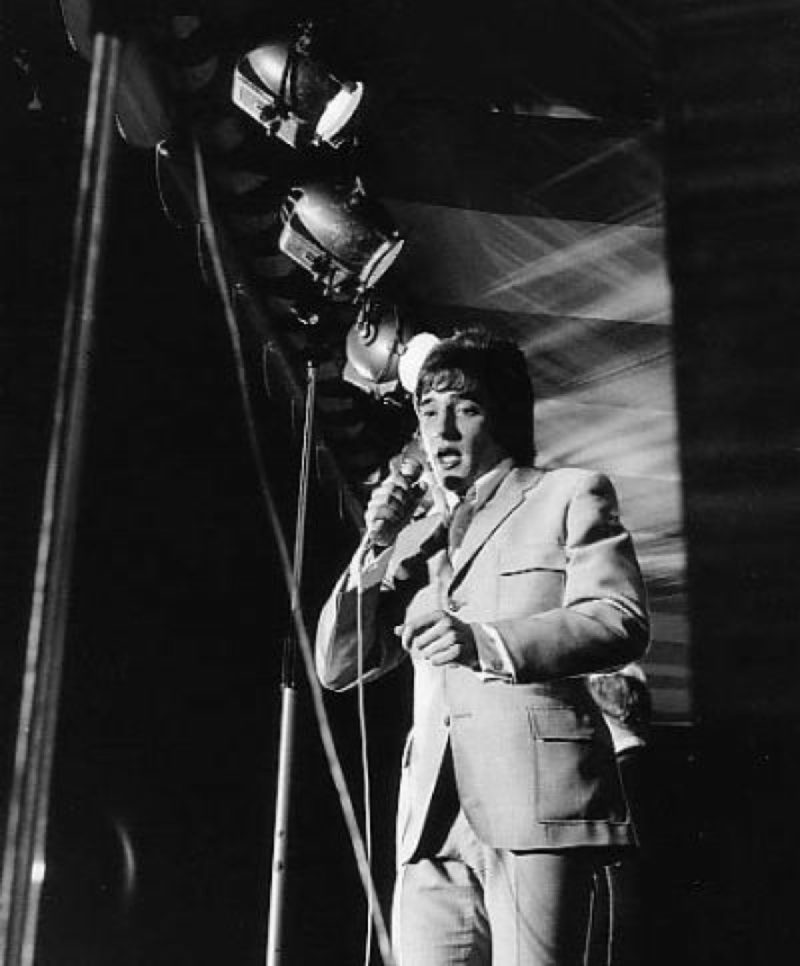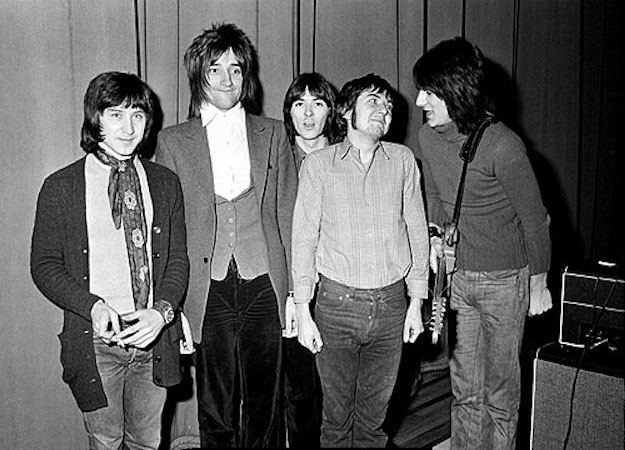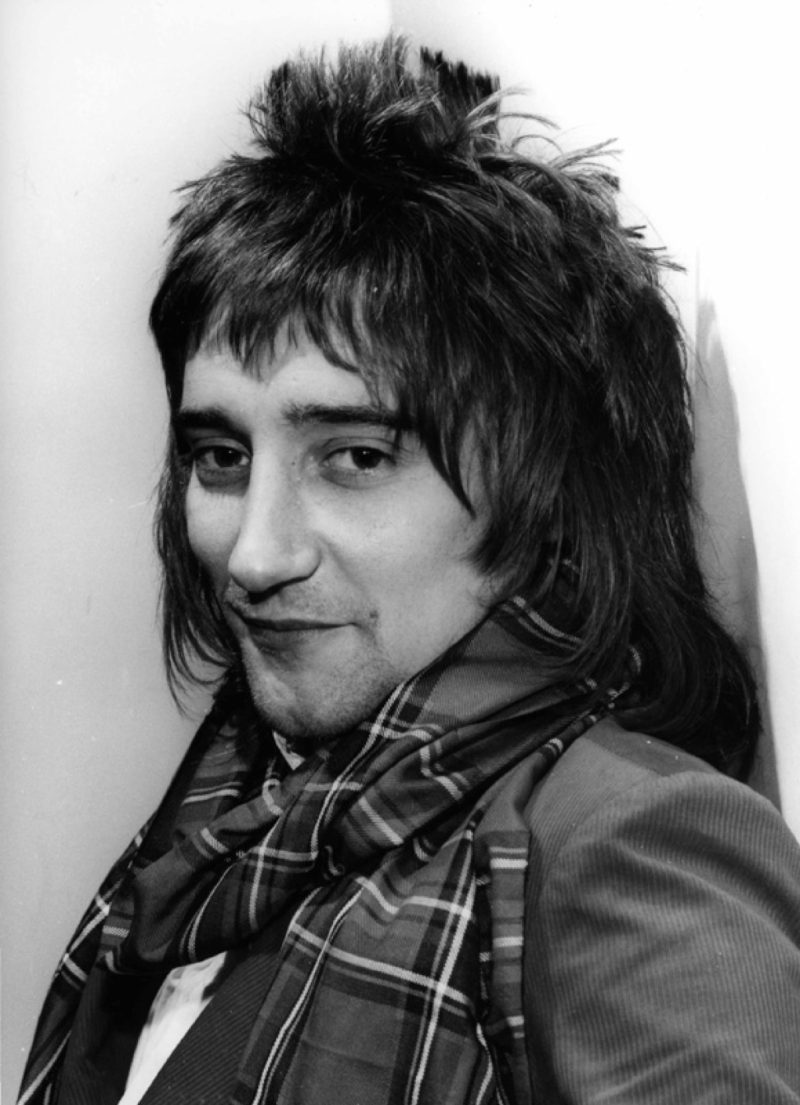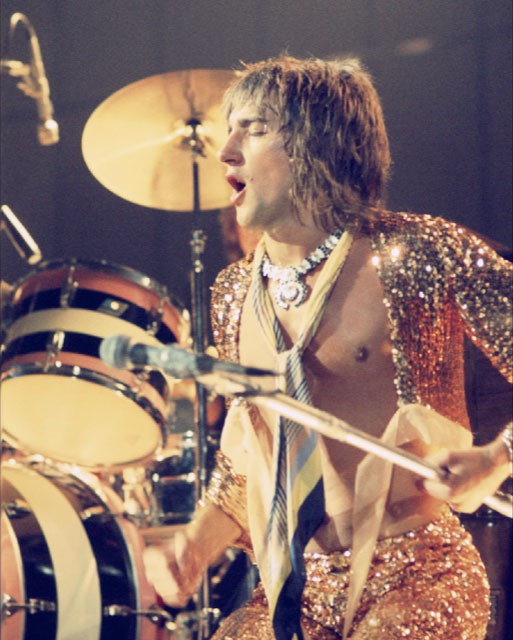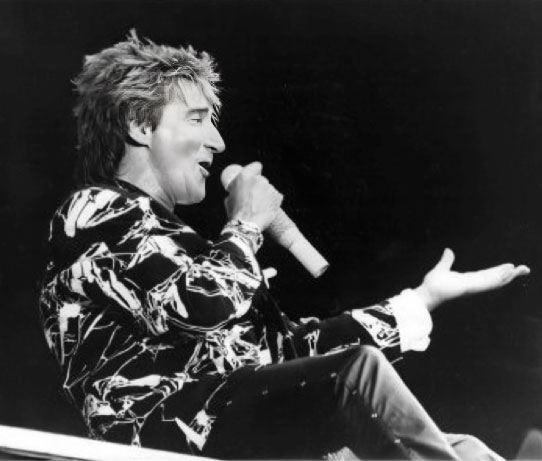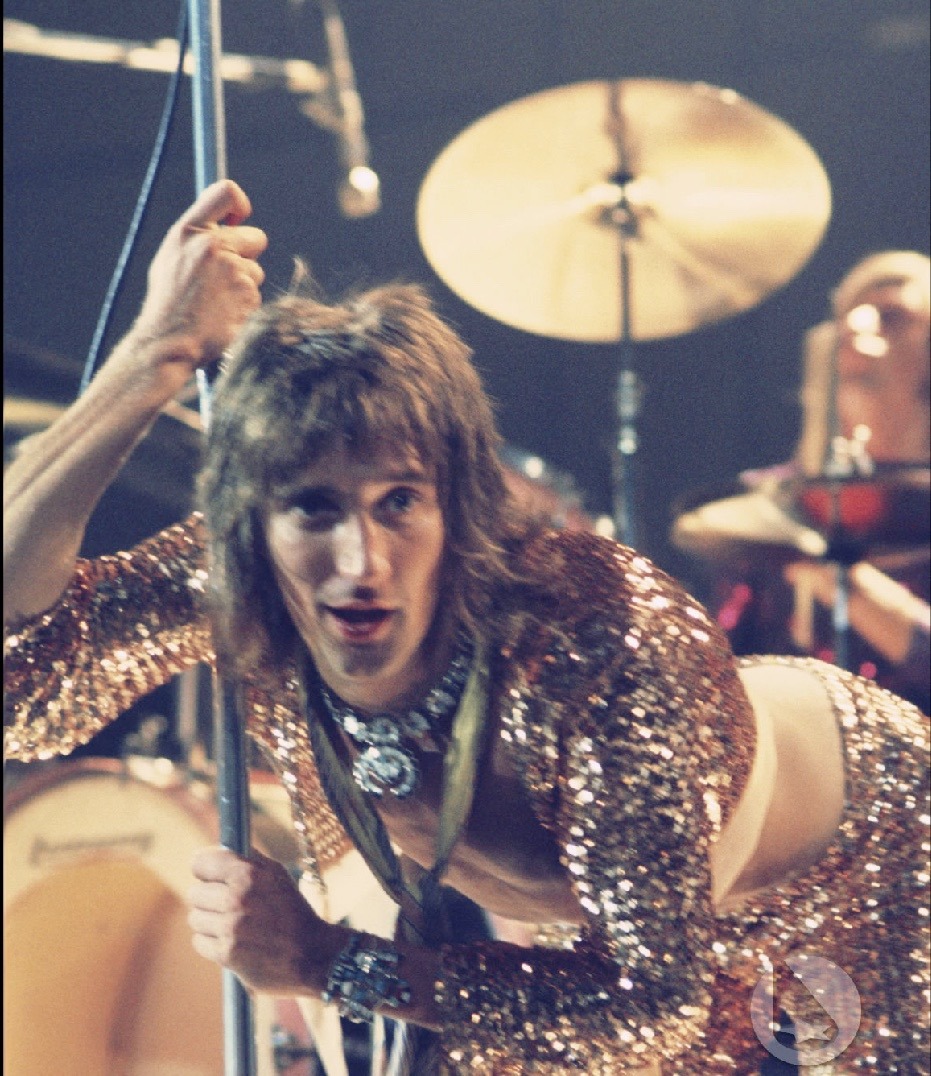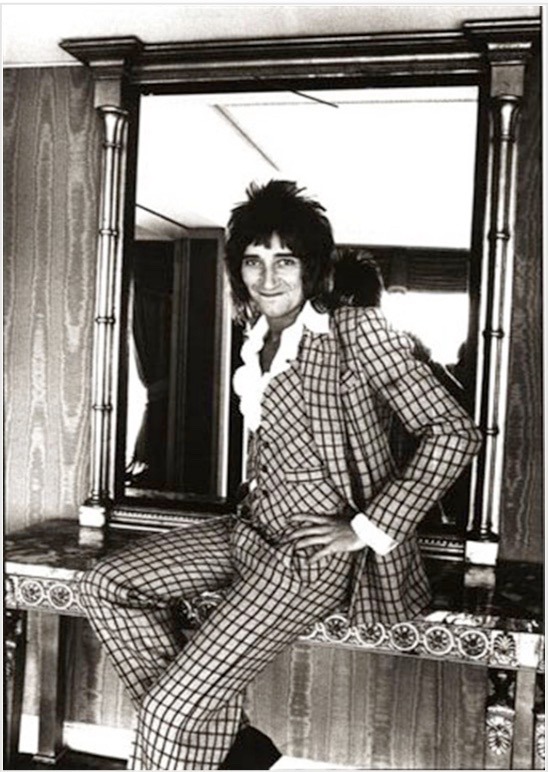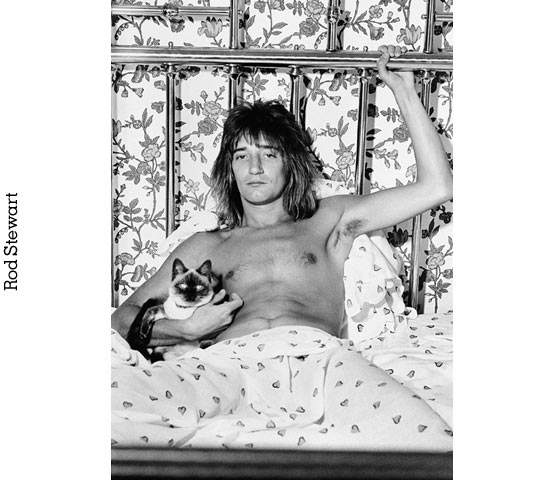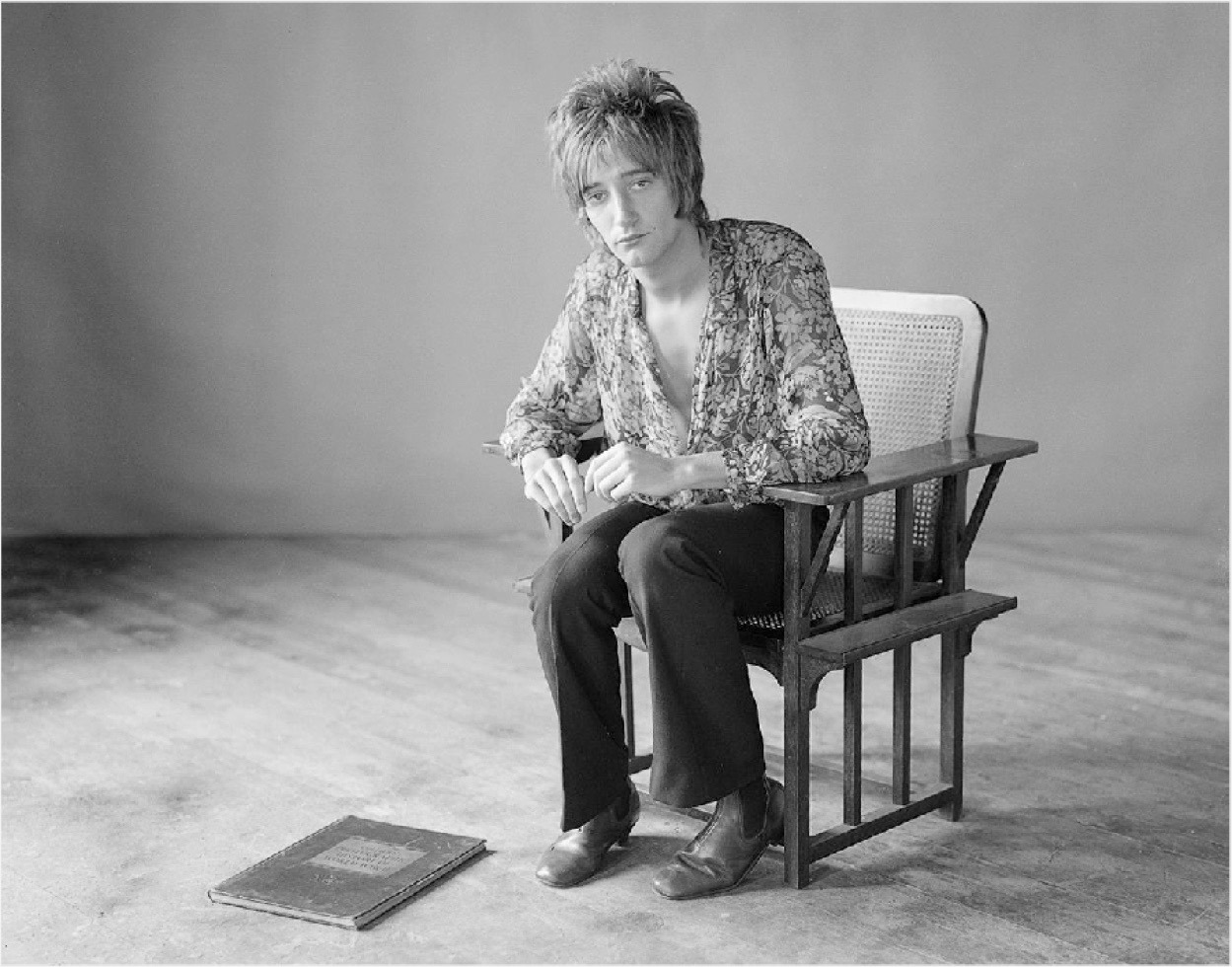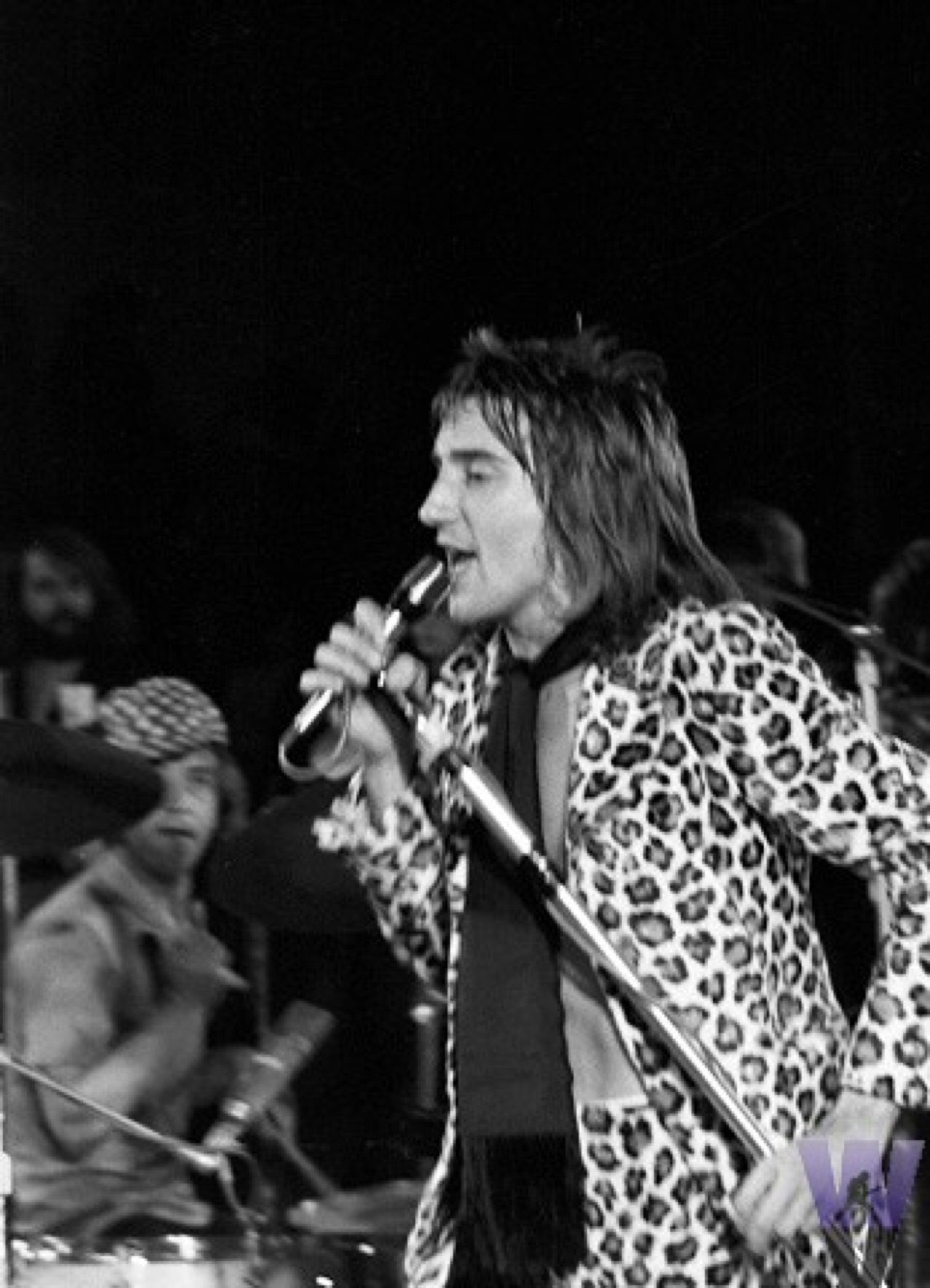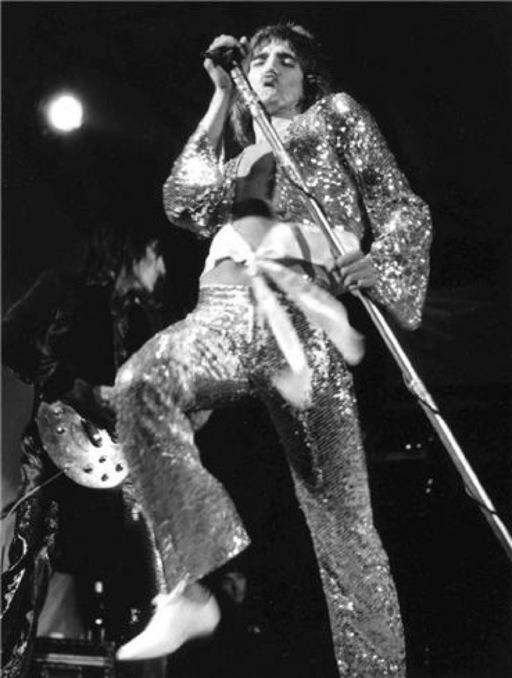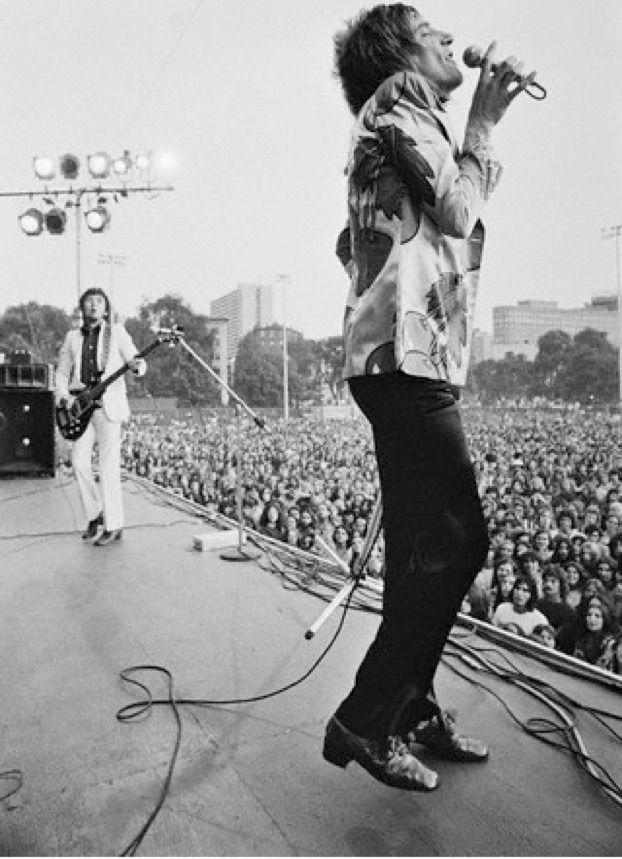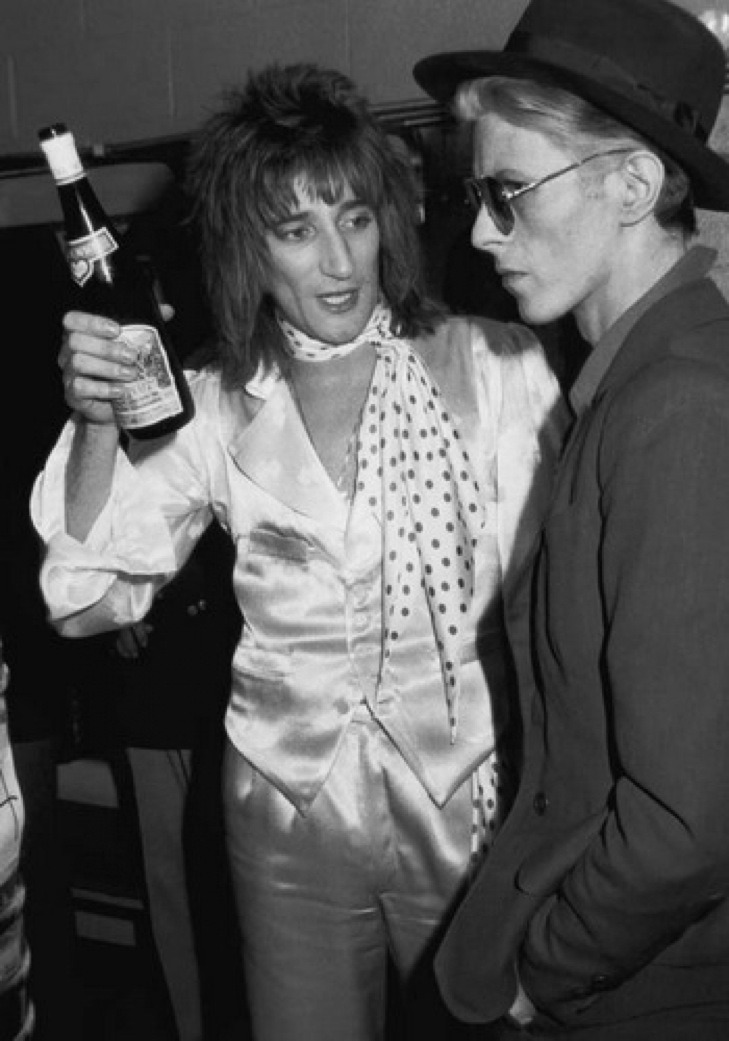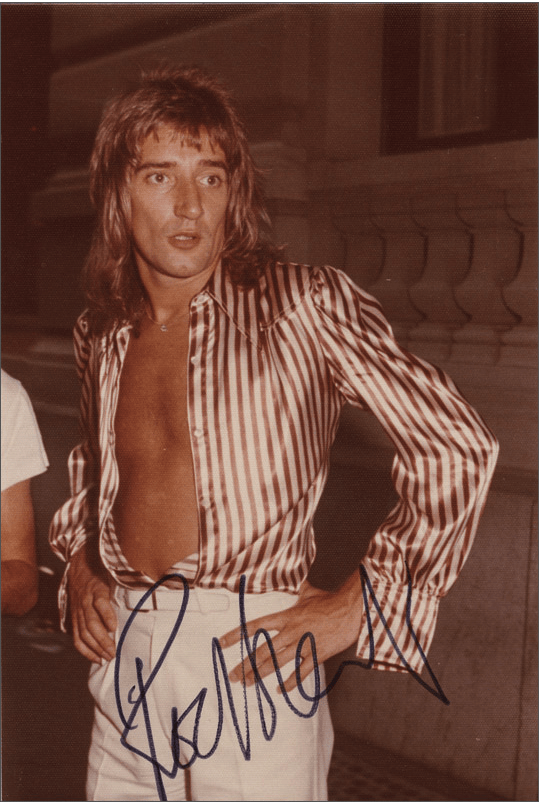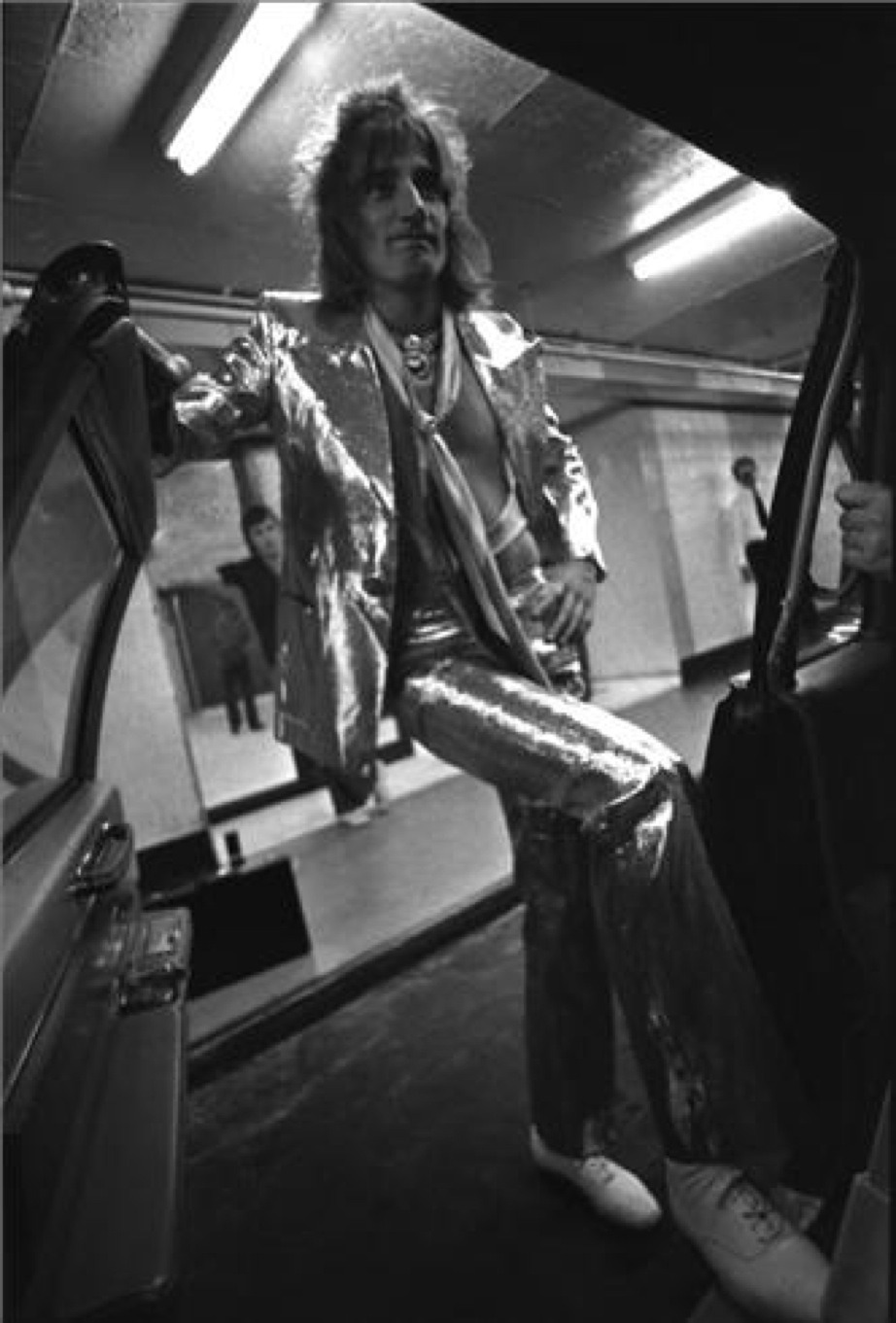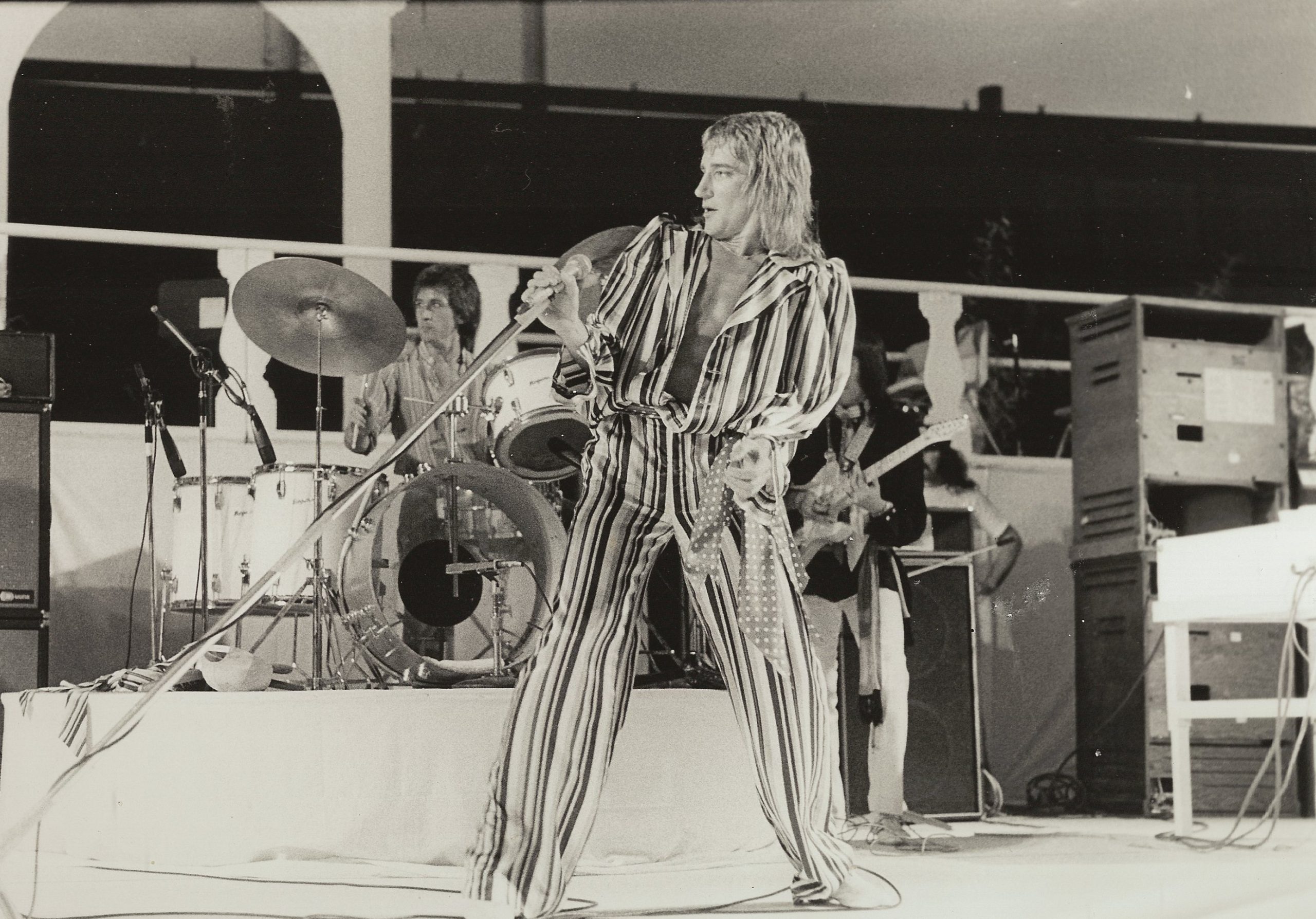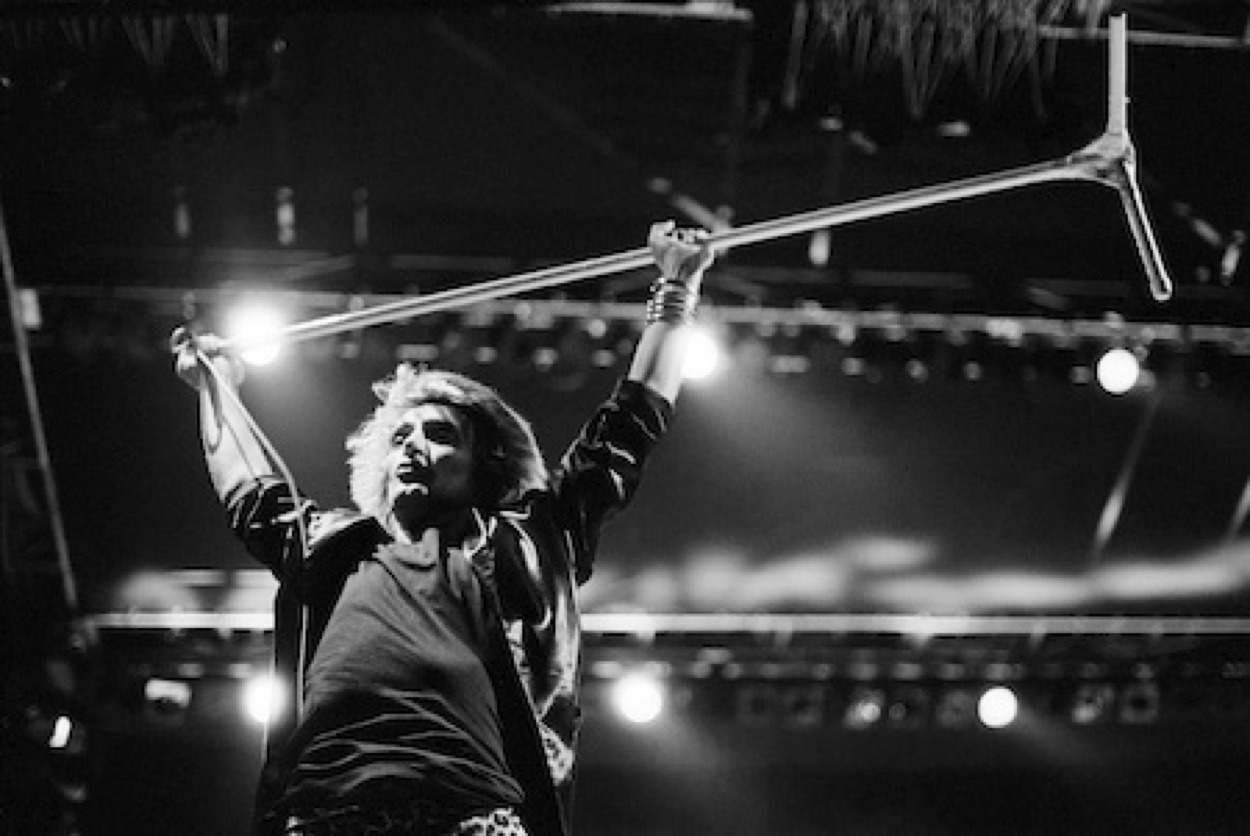Early Years
Although best known as a solo artist, Stewart achieved his first exposure and success as a member of several popular groups. After taking an early interest in folk music and rhythm and blues, he was a member of two relatively obscure London-based bands (Steampacket and Shotgun Express) in the mid-1960s before teaming with the influential guitarist Jeff Beck and future Rolling Stone Ron Wood in the Jeff Beck Group.
The Faces
Stewart’s collaboration with Beck ended in 1969 when, after two albums, he was persuaded by Wood (who had been fired by Beck) to join the Faces. Formerly the Small Faces, the band—also comprising Ronnie Lane, Ian McLagan, and Kenney Jones—played bluesy rock that appealed to Stewart’s long-standing interest in rhythm and blues. During the early 1970s the raucous Faces were among Britain’s most popular live performers, and their album A Nod’s as Good as a Wink…to a Blind Horse (1971) remains highly regarded. Nonetheless, Stewart, determined not to be constrained by the group format, pursued a parallel solo career during his tenure with the Faces (1969–75).
Solo Career
Released in 1969, his first solo album, An Old Raincoat Won’t Ever Let You Down (also released as The Rod Stewart Album), was commercially disappointing, but its mixture of original and cover songs would prove to be a successful formula for Stewart. Gasoline Alley (1970) sold better and was well received by critics, but it hardly suggested what would happen in 1971. Every Picture Tells a Story charted at number one in Britain and the United States simultaneously; the single “Maggie May” repeated the feat; and Rolling Stone magazine named Stewart “rock star of the year.”
His next album, Never a Dull Moment (1972), and its single “You Wear It Well” were also hits, as Stewart’s solo work eclipsed his efforts with the Faces.
Among other subsequent hits were “Tonight’s the Night (Gonna Be Alright)” and Stewart’s version of Cat Stevens’s “The First Cut Is the Deepest,” both from the album A Night on the Town (1976); however, the critical success that Stewart had enjoyed was fast approaching an end.
For the next two decades, the hits continued to come—the disco-inflected “Do Ya Think I’m Sexy” (1978), for instance, topped charts in multiple countries—but much of Stewart’s output was dismissed as uninspired. His cover of the 1985 Tom Waits song “Downtown Train” (1989) was the high point of a midcareer period generally considered inconsistent.
For a time in the early 21st century, Stewart abandoned song writing and focused solely on interpreting others’ work. Beginning in 2002 he released several collections of traditional-pop standards, as well as album-length takes on rock and soul classics, that received mixed reviews but found a wide audience.
For Stardust…: The Great American Songbook Volume III (2004), Stewart received his first Grammy Award. He returned to writing his own material for Time (2013), a smoothly diverse set of songs that found him in a nostalgic mood, and the appealing yet uneven Another Country (2015). His 30th studio album, Blood Red Roses (2018), yielded the minor hit song “Didn’t I.” He later released You’re in My Heart: Rod Stewart with the Royal Philharmonic Orchestra (2019).
Stewart was inducted into the Rock and Roll Hall of Fame as a solo artist in 1994 and as a member of the Faces in 2012. He was made Commander of the Order of the British Empire (CBE) in 2007. An autobiography, Rod, was published in 2012.



